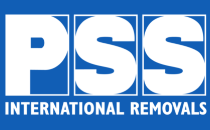When you move to another country, ensuring that you have access to local healthcare immediately is high on most people’s priorities, particularly if you have children. We never know when we are going to fall ill or be involved in an accident, and medical bills can sky rocket into five or six figure sums before you know it, and yes, they will come after you to pay the money.
It’s important to understand what will make you eligible to access local health systems, before you go and unlike the UK, you cannot be sure that just because you live there, you will be given healthcare.
There is excellent initial advice on the NHS website, but you do need to make sure that you get advice from your destination country too. Regulations regarding healthcare do change, so you need to ensure that you get up-to-date information from official sources.
Whilst expat forums can be a good source of advice, people can pass on information that is relevant for them, but might not be correct for you.
In the EU there are procedures in place to ensure that the initial moving period is made as easy as possible, but this still means that paperwork has to be obtained from the UK as well as following the correct procedures in your new country.
It is important that you don’t rely on your EHIC (European Health Insurance Card) as this will only reimburse you for the sums that are paid out to the locals, so for example in France, most health conditions are only covered up to 70% by the State, so you would have to find the remaining 30% yourself. Once you are in the system properly and have a French Social Security number, you are able to take a low-cost top-up insurance that doesn’t take into account any previous health conditions, and then you are fully covered.
However the situation will be very different in each EU country, and remember when you are resident in another European country, you need to apply for your EHIC card there, as your UK version will no longer to be valid.
To ensure you are covered from the moment that you touch down, it is likely that you will need some form of insurance. Travel insurance may cover you for a short time, but if not, you may have to get full medical insurance, even if it is only for a short period. However, with all insurance, the devil is in the detail, so you need to be sure that you comply with all of the requirements, and make a full declaration of information, or it could be invalid.
Most countries have health systems that are a mix of private and state and will involve some payment, or presentation of paperwork, at the point of treatment. If you come from the UK, you may find this a bit of a shock to the system! It is good to get into the habit of carrying all your health documents with you, for you and your children, as you never know when they will be required.
If you are moving with an employer, hopefully you will be covered by a company policy, but it is still important to ensure that you are covered for all types of medical care from the routine, through to emergency.
If you are already taking medication, you might like to make sure that the same drugs are available in your new country and if not, that you can take a quantity with you (some drugs are not legal in other countries and therefore you cannot take them in). If you have problems, it’s best to see your own doctor in advance of leaving to make sure that you can take supplies with you or use an alternative.
If you are considering a move overseas PSS International removals can help. We are a family run company and our desire is to ensure your family receives a friendly, professional and stress free overseas move. We have specialised in international removals for over 32 years, so whether you are planning on sending a full or part household removal, excess baggage or a vehicle we recognise the importance of ensuring our customers receive the same level of care and attention that we would expect ourselves.
Contact us now for a free estimator’s survey, or simply fill in our online moving or baggage quote form.






